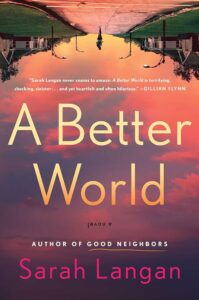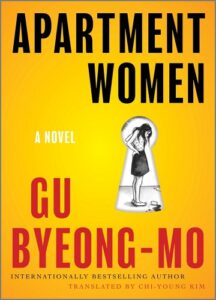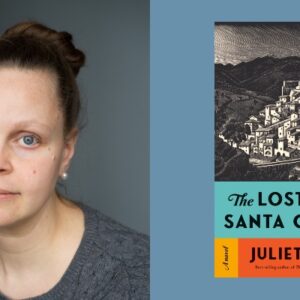As someone who has spent years living in cooperative housing, I will admit that when it comes to community, I’m ready to drink the cool-aid. But in an age of increasing inequality, an ongoing housing crisis, and increasing segregation between the haves and have-nots, I find it difficult to condone the concept of a gated community (or even an HOA—if I ever become a homeowner, I refuse to bow to the tyranny of protecting home values).
Luckily, I’m not alone when it comes to dubious feelings about planned communities and exclusive housing opportunities. The following novels are all concerned with uncovering the incipient rot and corrupt agenda behind the proliferation of so-called Nice Neighborhoods and their dedication to enforced conformity and exclusion of those who don’t fit their increasingly rigid mold.

Chandler Baker, The Husbands
(Flatiron)
Chandler Baker’s delightfully vicious thriller The Husbands is a high-concept response to The Stepford Wives. Baker’s lawyer heroine and her young family find themselves invited into a neighborhood promising a better work-life balance for busy mothers. She’s pleasantly shocked to see how many neighborhood men are sharing equal responsibilities in the home, but there’s a dark secret behind the previously reluctant partners’ participation in the home.

Nicola Yoon, One of Our Kind
(Knopf)
At the start of One of Our Kind, Jasmyn and King Williams move into a highly selective gated community catering to wealthy and successful Black families. However, despite the neighborhood’s claim to be a Black utopia, none of Jasmyn’s new neighbors are interested in social justice or, indeed, Black culture as a whole. The town’s secret, when finally discovered, is both completely logical and absolutely jaw-dropping.

Vincent Tirado, We Came to Welcome You
(William Morrow, September 3)
Vincent Tirado’s YA thrillers have already made huge splash, and their adult debut confirms a writer at the top of their game. In We Came to Welcome You, a queer couple is granted a rare opportunity to purchase a home in an exclusive planned community. Soon enough, the town’s promises of inclusion start to sound a lot like threats to participate or else. What secrets are the residents hiding? And what dark agenda drives the town’s strict and bizarre policies? This one comes out in September, but you can start looking forward to it now.

Sarah Langan, A Better World
(Atria)
In Sarah Langan’s latest novel, set in the dystopian near-future, a family is invited to join an exclusive neighborhood in which only the most talented or wealthy can secure a spot. As the family moves in and gets closer to learning the community’s secrets, they become ever-more doubtful that this place is where they want to be (and increasingly certain that their new neighbors feel the same way).

Lamar Giles, The Getaway
(Scholastic)
What if you could spend the apocalypse in the Happiest Place on Earth? That’s the conceit behind Lamar Giles’ brilliant satire of a post-apocalyptic Disneyland in which the employees and guests have been guaranteed safety; soon enough, the true class dynamics of the supposed refuge emerge, as Giles draws a frighteningly accurate picture of what money can pay for (before the inevitable revolution, that is).

Gu Byeong-Mo, Apartment Women
translated by Chi-Young Kim
(Hanover Square, December 3)
This one isn’t really a crime novel, but it fits the theme so well in other ways I couldn’t resist including it. Gu Byeong-Mo first made an impression on English-language audiences with her suspenseful and sleek thriller The Old Woman and the Knife. Her next novel to be translated takes us into a Korean apartment complex built to encourage families to have more children, but with the nation-wide housing crunch keeping most families in inferior living spaces, the new complex’s mission feels more like coercion. To take advantage of the brand-new facilities, residents must promise to have additional children or give up their lease; while some embrace sharing chores and communal childcare, others find the complex to be full of extra tasks and the same old thankless, gendered labor. (If you’re reading this and used to live in a housing coop with me, I promise I will write something positive about them soon!)

















